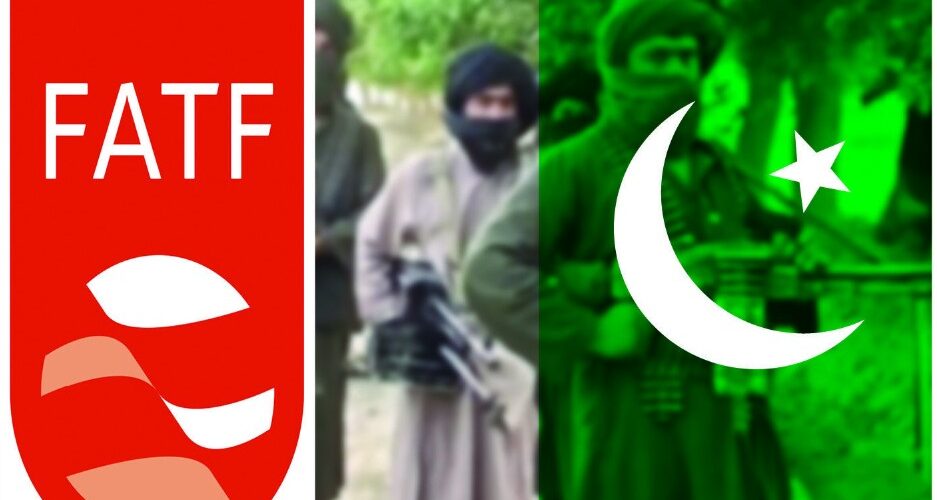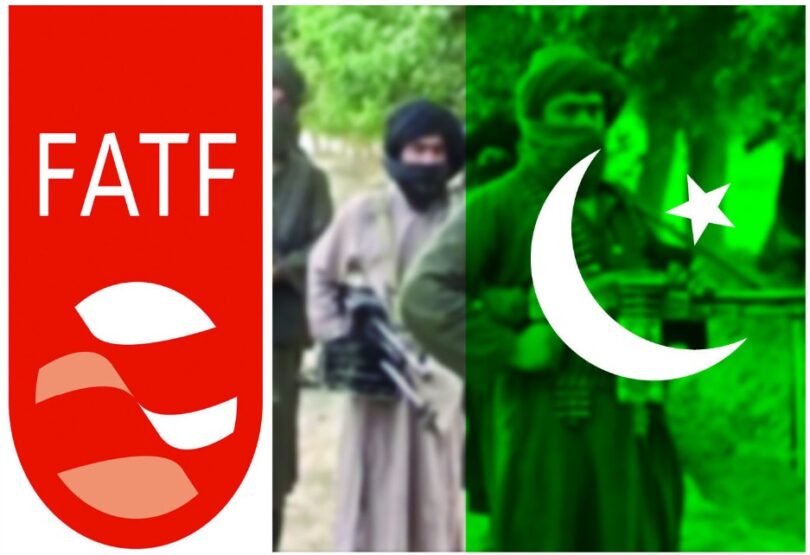In an unexpected development, the Financial Action Task Force (FATF) has condemned the Pahalgam terror attack (22 April 2025), acknowledging the certitude of the plausible funding which facilitated the terror attacks.
“Terrorist attacks kill, maim and inspire fear around the world. The FATF notes with grave concern and condemns the brutal terrorist attack in Pahalgam on 22 April 2025. This, and other recent attacks, could not occur without money and the means to move funds between terrorist supporters” stated the FATF.
The FATF accentuated the necessity for enhanced measures against terrorist funding and monitoring of the movement of funds which would be utilized for terror activities.
The FATF’s denouncement of the Pahalgam terror attack is noted as the third time in a decade when FATF has openly condemned an attack. Additionally, the FATF plans to release an extensive analysis report on terror funding which would entail case studies from its global network, and is also expected to host a webinar to disseminate awareness of the emerging threats originating from terror funding. The FATF has called on its 200+ member jurisdictions to intensify efforts under the Countering the Financing of Terrorism (CFT) framework.
In May, India prepped to highlight formal objections against the World Bank from conferring a $20 billion lending package to Pakistan, which is expected to be cleared in June.
A coordinated diplomatic campaign to several nations was initiated by India to expose Pakistan’s role in state sponsored terrorism against India.
India submitted a dossier of verifiable evidence to the Financial Action Task Force (FATF) in an effort to have Pakistan re-enlisted on its grey list. Since Pakistan’s recent involvement in Pahalgam attack (22 April 2025) and its breach of ceasefire in Poonch after Truce Agreement, it is evident that Pakistan had failed to uphold its commitments to curb terror financing after its removal from the FATF grey list in October 2022.
Hence India decided to present its dossier at the FATF meeting (12 – 13 June 2025, Strasbourg, France) https://www.fatf-gafi.org/en/publications/Fatfgeneral/joint-FATF-MONEYVAL-plenary-june-2025.html
The dossier had included financial records, intelligence reports, and international inputs along with the required substantial evidentiary proof to outline Pakistan’s persistent support to terror networks targeting India.
Additionally, Pakistan has been ascertained to have assigned 18% of its national budget to defence development. This is considerably higher than the 10–14 % allocated by any conflict affected nation. On basis of Pakistan’s recent developments, it can be inferred that the cash strapped Pakistan’s large military expenditure is indicative of its skewed priorities, discrediting Pakistan’s intent for peace.

It is vital to mention, Pakistan’s arms imports have contiguously increased especially in the years it received IMF assistance. Since 1980 to 2023, Pakistan’s arms imports have grown exponentially by 20%, predominantly when IMF approved funds for economic reforms to Pakistan. However, it can be deduced that the received funds may have been reassigned for bolstering its military and not economy.
Pakistan’s augmentation of unlimited economic terrorism availing the aid provided by agencies such as IMF is proving to be a threat to regional stability. It is imperative to rigidly monitor Pakistan’s stockpiles. Hence it is expected for India to take preventive and precautionary measures to secure itself from Pakistan’s anticipated threats.
Since exiting the FATF grey list in 2022, Pakistan has been on the enhanced follow-up category by the FATF. FATF considers Pakistan to have complied with certain recommendations but being “partially compliant” with one recommendation (recommendation 38 of FATF) — a deficiency relating to the coverage of predicate offences. Previously, it was found to be non-compliant on recommendation 38 (R.38), the status for which was then changed to “partially compliant” in the October 2022 review. The country first landed itself in the Grey List in 2008. It was removed from it a year later. However, it was put back twice again - from 2012 to 2015 and from 2018 to 2022.
The grey list, also known as “Jurisdictions Under Increased Monitoring” includes countries, which work with FATF to address systemic failures in their Anti-Money Laundering (AML) policies and Combating the Financing of Terrorism (CFT) regimes. This enforces the nations to resolve swiftly the identified strategic deficiencies within agreed timeframes and may be subject to increased monitoring by the FATF. (https://www.fatf-gafi.org/en/countries/black-and-grey-lists.html)
The black list on the other hand refers to High-Risk Jurisdictions subject to a Call for Action. It Identifies nations or jurisdictions with immense strategic deficiencies to counter money laundering, terrorist financing, and financing of proliferation. In such cases, the FATF calls on all its members and urges all jurisdictions to apply enhanced due diligence, and in the most serious cases, countries are called upon to invoke counter-measures to safeguard the international financial system from the ongoing money laundering, terrorist financing, and proliferation financing risks emanating from the country. This year, Myanmar, Iran and Democratic People’s Republic of Korea are on the black list.
Jurisdictions under Increased Monitoring (the grey list) as of 13 June 2025 are Algeria, Angola, Bolivia, Bulgaria, Burkina Faso, Cameroon, Côte d’Ivoire, Democratic Republic of Congo, Haiti, Kenya, Laos, Lebanon, Monaco, Mozambique, Namibia, Nepal, Nigeria, South Africa, South Sudan, Syria, Venezuela, Vietnam, Virgin Islands (UK), and Yemen. It is important to mention, Turkey was also placed on the “grey list” in October 2021 for failing to supervise banking, real estate and other sectors vulnerable to money-laundering and to financing groups such as Islamic State and al Qaeda on the UN’s sanctions list. It was removed from the list in June 2024.
However, the Pakistani state’s direct involvement with the Pahalgam attack has received a strong censure from the FATF without any plans to be enlisted back on its proscribed lists of nations involved with terror financing or in matters in regard to that nature. Pakistan continues to work with the FATF and its regional body, the Asia/Pacific Group on Money Laundering (APG), to further strengthen its AML/CFT system, despite the evidentiary proof coming to light of its hand in terror activities.
In response to having evaded the grey list, the Pakistan Minister Khawaja Muhammad deemed the decision of the International Cooperation Review Group (ICRG) of Financial Action Task Force (FATF) as Pakistan’s big victory, referring it as thwarted ploy by India and Israel to isolate Pakistan.
He further stated, “China took a clear stance and supported relief for Pakistan, while Turkey endorsed China’s stance”. Additionally mentioning, “Japan also fully supported Pakistan as it is the co-chair of the Asia Pacific Group (APG).”
The recent developments could have been easily anticipated from the all-weather ties Pakistan has been forging with China and Turkey. Azerbaijan, also a part of the Pakistan-Turkey tri facto effect, backed Pakistan in an official statement (No: 184/25), denouncing India’s counterterrorism strikes and referring to the killed terrorists as “innocent victims.” This glossing over and whitewashing of terrorism is a clear indicative of Azerbaijan’s relations with Pakistan and Turkey in opposing countries such as India, Greece, Armenia, and Cyprus.
Despite Pakistan’s Defence Minister Khawaja Muhammad Asif admission of Islamabad to having supported terrorist organisations for over 30 years, calling it “dirty work” done on behalf of the West, as well as the Former Foreign Minister Bilawal Bhutto confirmation of Pakistan’s “past,” dealings in state grown and supported terror networks, Pakistan boisterously brags of its Counter terrorism efforts.
Turkish C-130 Hercules aircraft reportedly delivered military supplies to Pakistan last month. In 2021, an agreement forged Turkey as Pakistan’s second-largest arms supplier after China, with 10% of Ankara’s exports between 2020 and 2024 made specifically for Pakistan. The two nations are collaborating on a joint facility for Turkish-designed fighter jets as well. This alignment between Turkey and Pakistan also includes the similar rhetoric or narratives seen in international diplomacy. While Turkey backs Pakistan on Kashmir narratives, Islamabad supports Turkey’s claims in Cyprus. In such a case, the growing relations between India, Greece, Armenia, and Cyprus is no longer optional but extremely vital.
New Delhi has consistently borne the brunt of Pakistan-sponsored terrorism.
It is clear that since Operation Sindoor India’s approach has shifted in a way that any Pakistan-sponsored terror activity will be considered an act of war and will be responded to, not limiting to precision strikes. Delhi has transitioned to escalate-to-deescalate approach. It aims to pressure the international community, particularly the United States, for collective responsibility to persuade Pakistan against its futile efforts against India.
“India has come to terms with the Chinese nuclear capability in the belief that China will not use nuclear weapons against India. But India has no such confidence about Pakistani restraint and believes that India’s superior size and capabilities offer an incentive for Pakistan’s nuclear weapons development and use,” stated the Indian Defence minister Arun Singh in a meeting with Congressman Stephen Solarz in December 1986. This may stand true till date. India has asserted its strategic restraint, exposing Pakistan’s nuclear risk-taking, to convince the international community of the future threats its neighbour poses. However, the expectation of Pakistan limiting or ceasing its attrition warfare using its terror proxies against India remains inevitable, so long as it continues to receive funds in facade of development to save its sinking ship.





![Pakistan and Saudi Arabia signed a defence agreement on September 17 in Riyadh [Handout/Pakistan Prime Minister's Office]](https://www.thestrategicperspective.org/wp-content/uploads/2026/01/pak-saudi-145x100.jpg)




